“Within conventional education, we interact with the stuff we’re learning from a controlled basis. So anything you write about is something you can say confidently, this is how it is. And basically if you can’t say that, you’re discouraged from writing about it. And I felt like the whole purpose of writing, especially once you got to a university type level was to deal with those type of grey area ideas.”
Tyler Howard, 33, was dissatisfied with his allowance to question and discuss those grey areas within his formal education. This realization stemmed into disillusionment for the system and then bloomed into an improved model for educating children.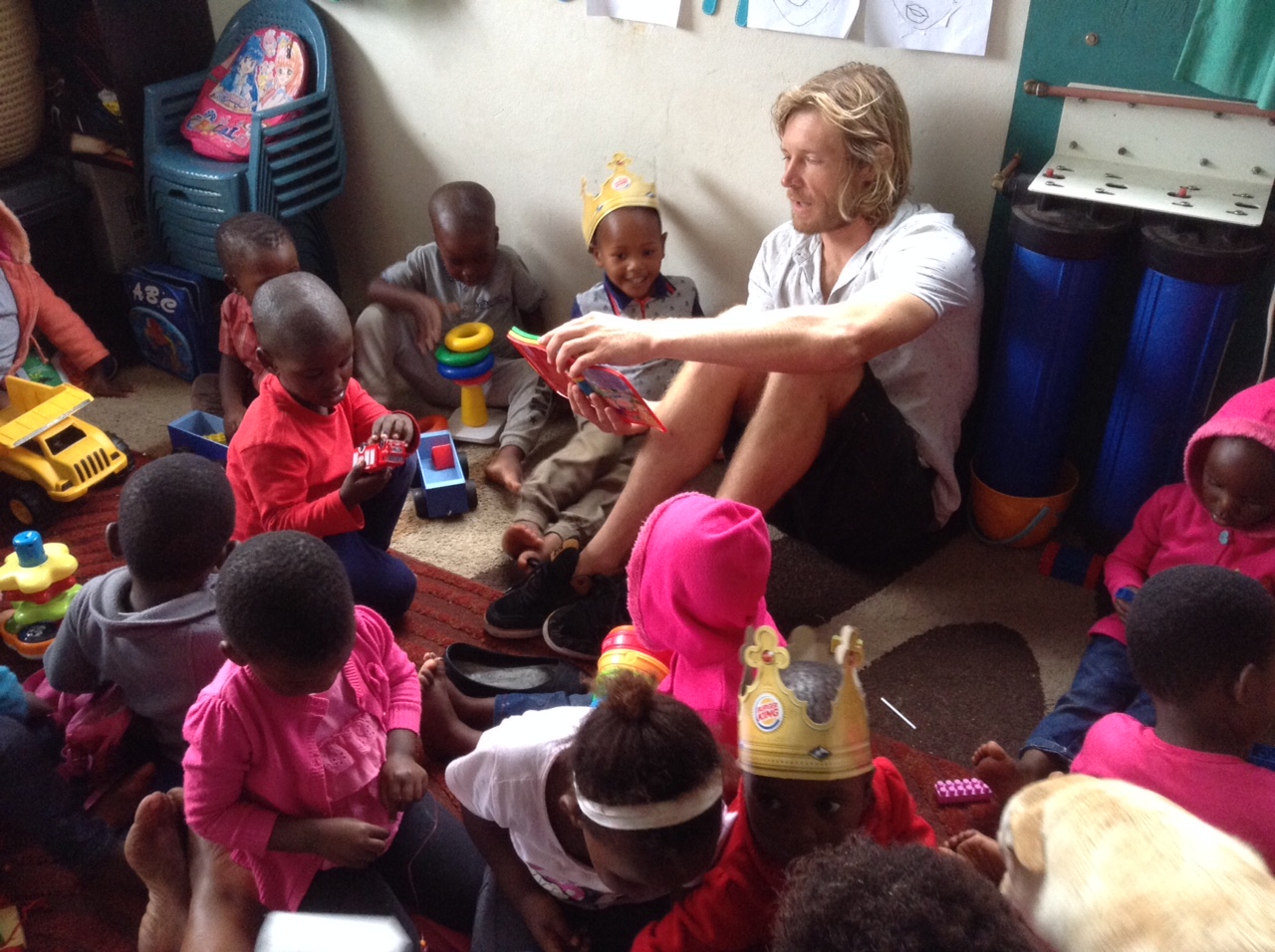
At Thanda’s inception in 2008, the organization offered basic after-school programming with a focus primarily on homework help. With little long-term impact being made, a change in programming was needed. Tyler saw an opportunity to create a curriculum that would do more than provide a space for the kids each day. Thanda could go beyond supporting the students through the broken school system and help them develop as individuals. “At the end of the day, our job here is to develop people who are going to be good people”.
“A lot of where I have come in, and what we’re doing, is trying to create an education system that is more based on Ubuntu. [Ubuntu is the theory of ‘I am because of you’ and that we are all connected as humans.] It’s a little bit more based on teaching us how to get along. And it’s not about controlling ideas. It’s about being comfortable making sense of things. And understanding that a lot of the important things – philosophy, religion, politics, human decency – are not going to have a clear answer.”
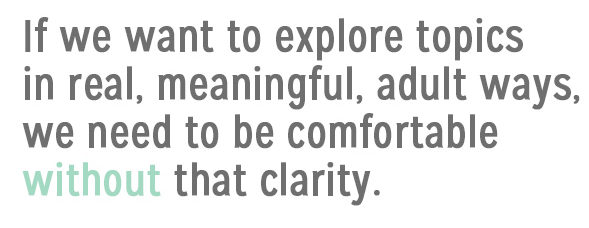
Tyler was born in the United States and moved to England when he was 9 years old. With an outsider perspective, he was provided the opportunity to question. Growing up as the son of a corporate CEO in a privileged and well educated environment, helped also to give him the safety net necessary to act on his discontent. Had he not been a part of that world, he might have been striving to obtain that lifestyle instead of discovering its flaws.
Tyler began questioning his education at an early stage. Two of the main texts used at Thanda, Letter from Birmingham Jail (Martin Luther King Jr.) and Civil Disobedience (Henry David Thoreau) he read during his 10th grade English class, while his teacher was talking about something completely different. “Something that seemed totally irrelevant to my life. And I ended up reading these two things from a book because I was bored and they ended up really resonating with me and having this big impact. And I think definitely that was a significant moment in my perspective of education because it made it clear that, there is stuff to be learned. But what they are teaching us feels useless. These pieces [King & Thoreau] are talking about something. About how we interact with the world. Beyond their literary merit, they have something to say”.
Tyler continues to look to the world around him for teaching materials. Many of the books used are what he 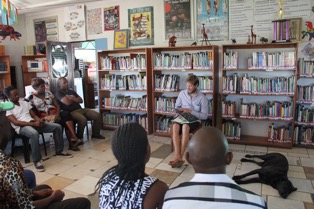 remembers from his own childhood reading. He pays attention to what kid’s movies are popular and looks at what will do a good job at illustrating what Thanda is trying to teach. Sometimes these come from surprising places. Curriculum materials have been sourced from newspapers, surf magazines, art, advertisements and hip-hop music.
remembers from his own childhood reading. He pays attention to what kid’s movies are popular and looks at what will do a good job at illustrating what Thanda is trying to teach. Sometimes these come from surprising places. Curriculum materials have been sourced from newspapers, surf magazines, art, advertisements and hip-hop music.
Tyler’s Programme Director role at Thanda ranges from curriculum development and facilitator trainer to hiring manager to mentor to skateboarding guru. But while he knows his role is vital, he also sees the community investment in Thanda. “I don’t really feel like this is my thing. One of the reasons we have done things the way we have and why we have focused on this type of education is that people take ownership of this.”
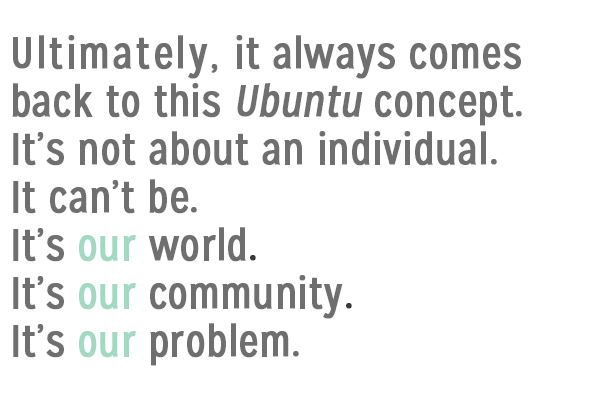 This is also illustrated Letter to Birmingham Jail. “Injustice anywhere is a threat to justice everywhere…tied in a single garment of destiny. Whatever affects one directly affects all indirectly.” (MLK JR.)
This is also illustrated Letter to Birmingham Jail. “Injustice anywhere is a threat to justice everywhere…tied in a single garment of destiny. Whatever affects one directly affects all indirectly.” (MLK JR.)
Other people’s failures are your problem too. “What we’re really dealing with is entitlement. Which is again something that a western education actually encourages. ‘Well if I got a better score then I belong on top’. But what about the other learners in the class – how did that go for them? Aren’t we all in one society? So if I get straight A’s and make ‘Johnny’ feel insecure about himself and he doesn’t get a job as a result and then becomes a heroine addict – that’s my problem. Because now he’s either going to be begging and bumming me out, or breaking into my house, or if nothing else, he can’t buy my product that I’m selling because he is spending all this money on smack”. 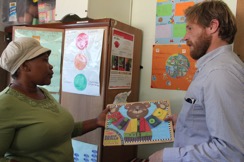 One of Tyler’s main methods is that no matter what the topic of training is, the staff and learners alike are encouraged to look at the evidence and make their own decision. “They mustn’t believe anything we say.” Thanda is working to encourage an active curiosity. Tyler’s role, in essence, is to present information and facilitate a discussion to help work through ideas.
One of Tyler’s main methods is that no matter what the topic of training is, the staff and learners alike are encouraged to look at the evidence and make their own decision. “They mustn’t believe anything we say.” Thanda is working to encourage an active curiosity. Tyler’s role, in essence, is to present information and facilitate a discussion to help work through ideas.
A good example is how Thanda deals with AIDS. “Thanda is here primarily because AIDS made a big hole in many communities by rendering many children orphans, but we barely talk about it. HIV prevention is 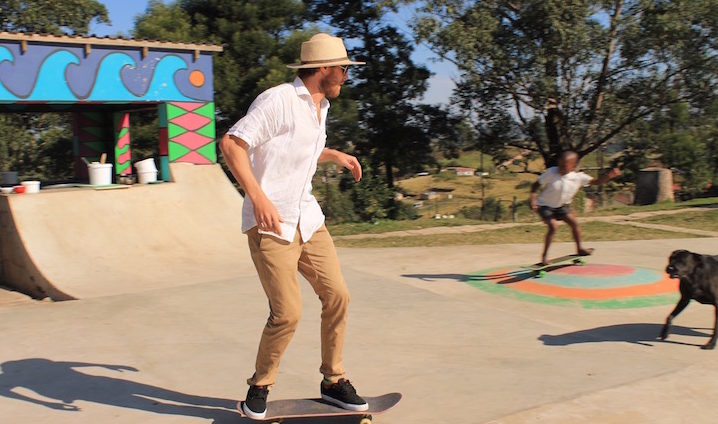 one day of the curriculum. Because the issue with AIDS isn’t knowing about the facts of AIDS the disease; its letting fear, peer pressure, and superstition make your decisions for you. We get down to the root cause, which is insecurity. Which is people letting someone else think for them about something they’re intelligent enough to think about for themselves.” Tyler helps facilitators find those thinking skills in themselves and they go on to help learners do the same. He helps them understand, by looking at stories and looking at real life role models, who the real heroes are. Why are the heroes the ones who can think for themselves? Why are the ones we look up to, the ones with their own opinions?
one day of the curriculum. Because the issue with AIDS isn’t knowing about the facts of AIDS the disease; its letting fear, peer pressure, and superstition make your decisions for you. We get down to the root cause, which is insecurity. Which is people letting someone else think for them about something they’re intelligent enough to think about for themselves.” Tyler helps facilitators find those thinking skills in themselves and they go on to help learners do the same. He helps them understand, by looking at stories and looking at real life role models, who the real heroes are. Why are the heroes the ones who can think for themselves? Why are the ones we look up to, the ones with their own opinions?
What the future holds:
“We are at the precipice where this stuff is getting ready to change. We [as humans] are very powerful and we need to come to terms with that power. And we need to stop coming with this child-like denialism. And our governments cannot behave like children anymore. You don’t solve problems with violence and yet that is the basis of our whole prison system, it’s the way our governments solve problems with each other and the foundation of our global society. That has to change. And it is going to change. And the more of us that are doing this, the more it will change.”
“It’s going to have to happen with the kids.
So how do we do that?
We fix education”.



1 Comment
Patrick Vorster
Jun, 24, 2016Great, I think you’ve got it in the bag Tyler. I really enjoyed reading the article and know that you are making a huge difference in the lives of not only the children but the community at large.